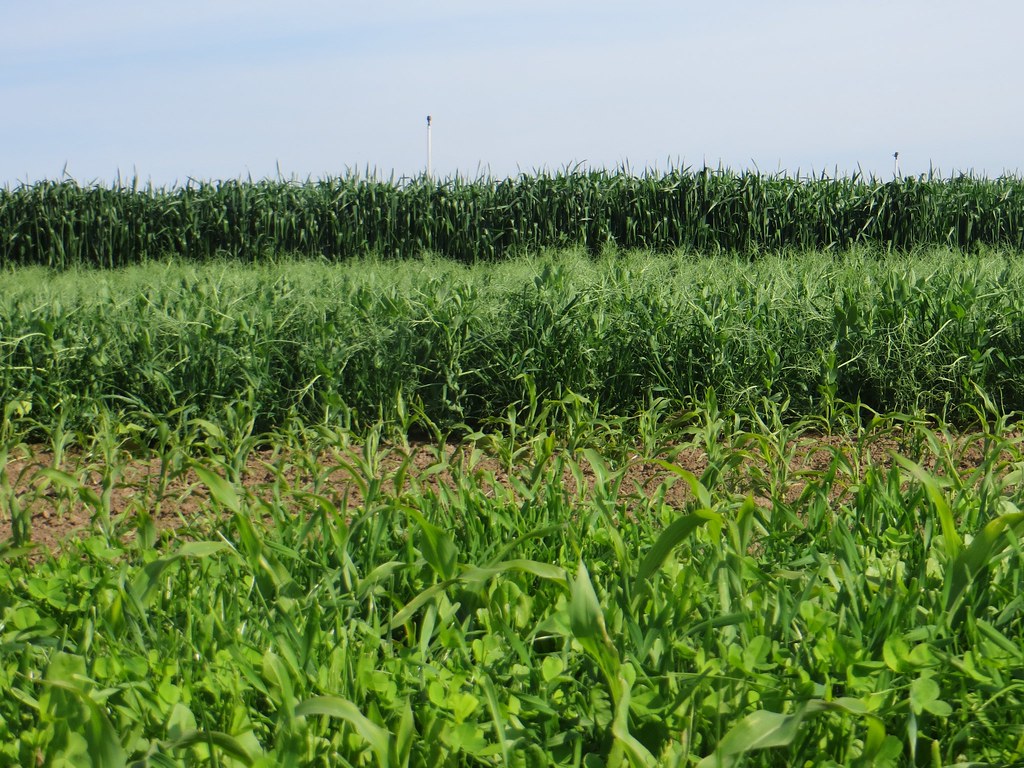Scientists from Aberystwyth University are to collaborate with some of the best plant breeders in Europe in order to promote a more sustainable food production system.
The work will look at crops that can be used to replace imported proteins such as soya beans used to feed animals. Currently, around 35 million tons of soya is imported into the European Union and United Kingdom every year, with the majority of these being imported from countries outside of Europe.
The aim of the Legume Generation consortium is to bring together the foremost experts from across the continent in order to increase production of different types of protein through plants, such as breeding new varieties of soya beans, lupins, peas, lentils, beans and clovers.
Another advantage of these crops is that they produce nitrogen and fix it in the soil, and therefore can reduce dependency on nitrogen inputs and imported fertilizers. Around 10 million tons of nitrogen fertilizers is imported into the European Union and the United Kingdom every year, and like the soya beans a majority of this is imported.
Only 2 – 3% of the cultivated land across Europe is used to produce legumes of this kind, and therefore scientists are eager to finding new ways of encouraging and promoting production in the name of sustainability, resilience of the food system and reducing the carbon emissions of the farming industry.
The new partnership has received €7 million from the European Union and the United Kingdom Government and includes 32 partners from 16 countries including New Zealand and the United States of America. The project will sun until February 2028, and the ultimate aim is to reduce the deficit in legume production by promoting plant breeding that will make production more productive and profitable for farmers.
Dr Catherine Howarth from the Institute of Biological, Environmental and Rural Sciences at Aberystwyth University said:
‘Given the climate and biodiversity crises, and the benefits of plant-based foods, plants of the legume family are good for our health and for the planet. Lentil, soybean, lupin, pea, and bean and their relatives fix their own nitrogen from the air and provide us with protein-rich seeds, that are key to a healthy and sustainable diet. Increasing their production in Europe will make farming systems more diverse, resilient and sustainable.’
In a statement Dr Lars-Gernot Otto from the Leibniz Institute of Plant Genetics and Crop Plant Research said:
‘The project will contribute to our mission to support plant breeding with our seed bank and to harness the power of genetics for the sustainable development of farming. The legumes are an essential part of sustainable agricultural systems and this project allows us to contribute to developing the improved varieties that we need.
‘We need to form new partnerships between leading European plant research organisations and the plant breeders upon which the improvement of farm crops depends. We will change the way legume plant breeders are supported by research for the benefit of European farmers, the environment, and our health.’
For more information about the project and further work in the field, go to the Legume Hub website.



